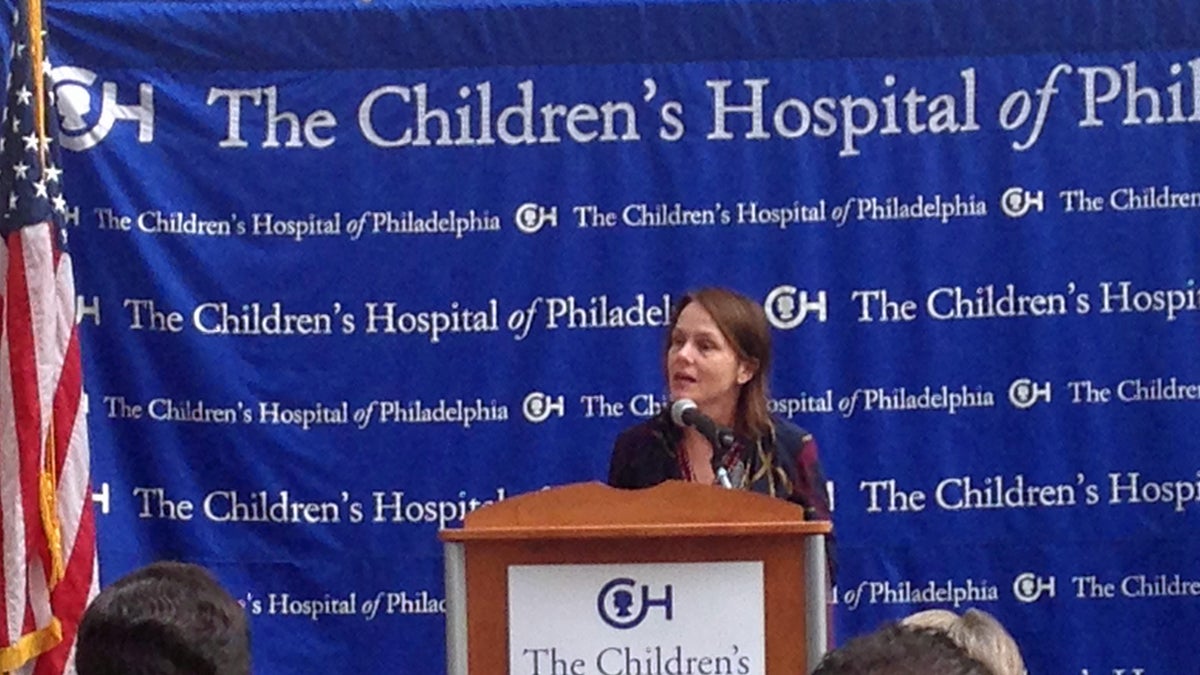43 percent of Pa. foster children getting psychotropic drugs, study finds
Listen
Kathleen Noonan, co-director of CHOP's PolicyLab, said that while there are few alternatives to drugs available to foster kids, prescribers may have over-relied on them. (Katie Hiler/for NewsWorks)
Pennsylvania children in foster care are nearly four times as likely to be prescribed psychotropic drugs for behavioral problems compared with kids outside the foster system, according to a new report published by Policy Lab and the Children’s Hospital of Philadelphia.
The study looked at children enrolled in Medicaid both in and outside of foster care. Nearly 43 percent of foster children have been prescribed psychotropic drugs, compared to 16 percent of children overall.
In more than half these cases, the drugs were being used to treat attention deficit hyperactivity disorder.
Lead researcher Meredith Matone, who said she expected the higher prescription rates, said kids in foster care need more support, not just medications.
“So youth in the foster care program have been exposed to trauma, which is a correlate of mental health need,” said Matone. “And so some of it is just that the mental health needs are greater in this population. But I think we know that the behavioral health system for youth in foster care is also a little bit fragmented.”
The report also found that many foster children were prescribed more than one drug, and very few regularly saw a behavioral health provider.
Kathleen Noonan, co-director of CHOP’s PolicyLab, said that while there are few alternatives to drugs available to foster kids, prescribers may have over-relied on them.
“There was limited sort of behavioral health services available for them. And that’s not to say that there weren’t services that you could refer them to, but the services maybe weren’t actually meeting their needs,” said Noonan. “So it was our theory that, actually, the meds were sort of the easiest thing.”
In some cases there was little evidence that psychotropic drugs were the best treatment for a child. According to Cathy Utz, deputy secretary with the Department of Human Services, many kids are being medicated for common childhood behaviors.
“We take children who are in foster care and put them into a home where they don’t know the person with whom they’re living,” said Utz. “We almost expect that they would be perfect, that they wouldn’t have any behavioral issues.”
Utz says Human Services in monitoring medication more thoroughly and offering education and training to case workers and families.
According to the report, from 2002-2007, the rates of prescribing psychotropic drugs to youth increased in 45 states, including Pennsylvania.
WHYY is your source for fact-based, in-depth journalism and information. As a nonprofit organization, we rely on financial support from readers like you. Please give today.

